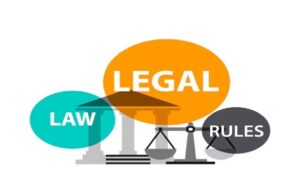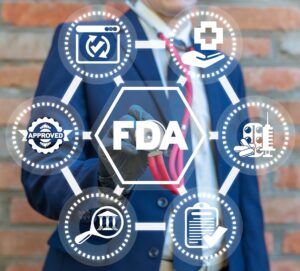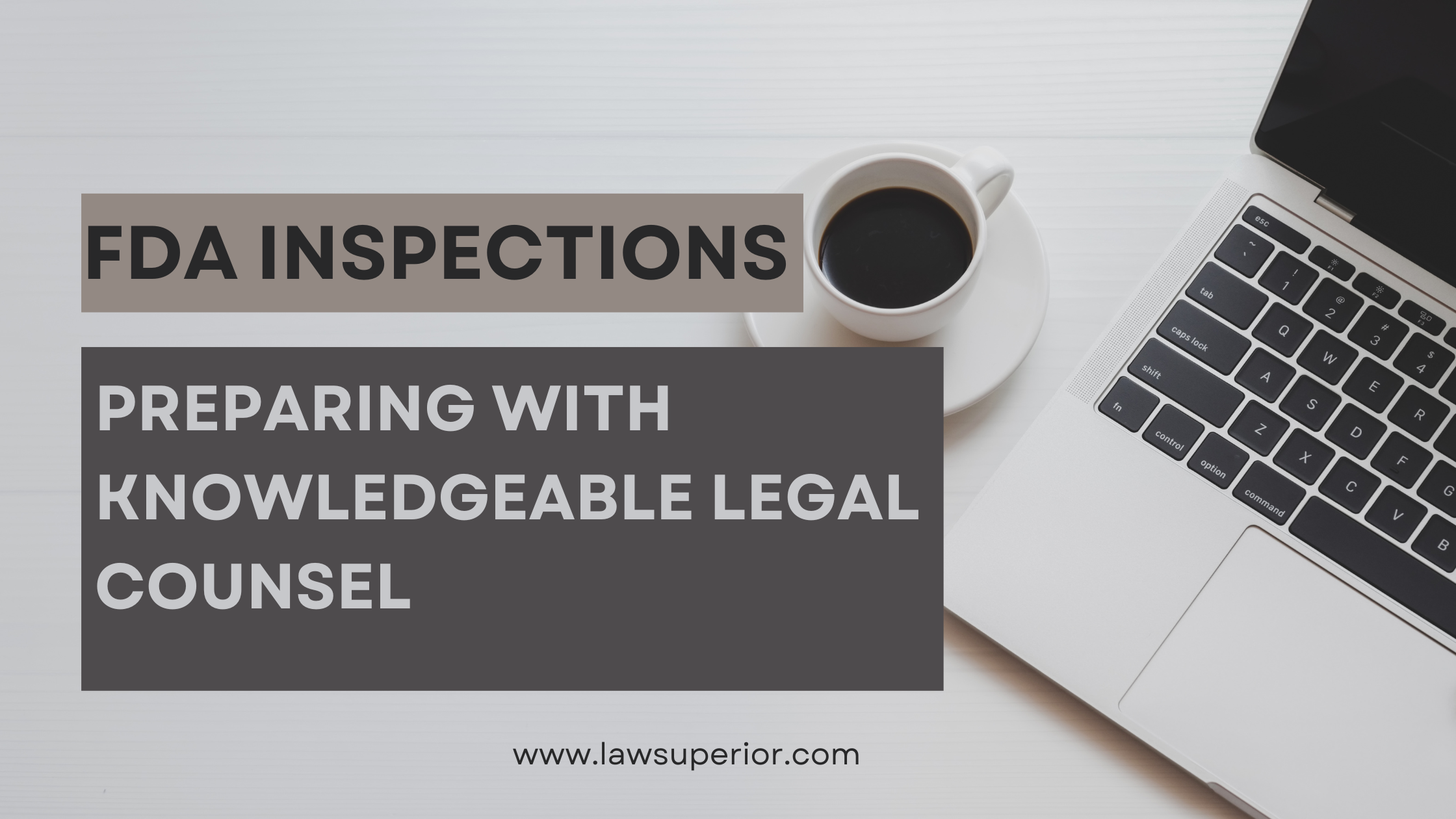In today’s regulatory landscape, FDA inspections are a routine part of ensuring compliance for pharmaceutical, medical device, food, and other regulated industries. These inspections aim to verify that companies are operating in accordance with FDA regulations to guarantee the safety and efficacy of products reaching consumers. However, facing an FDA inspection can be daunting without proper preparation and guidance. This article delves into the significance of preparing for FDA inspections with the assistance of knowledgeable legal counsel.
Introduction to FDA Inspections
FDA inspections involve thorough examinations of facilities, processes, records, and procedures to assess compliance with regulatory requirements. They may be routine, pre-approval, or triggered by complaints, adverse events, or product recalls. Preparation is crucial as non-compliance can lead to enforcement actions such as warning letters, fines, product seizures, or even criminal prosecution.
Importance of Preparing for FDA Inspections
Proper preparation minimizes disruptions to operations, reduces the risk of regulatory actions, and demonstrates a commitment to quality and compliance. It allows companies to identify and address potential issues proactively, ensuring that they are well-equipped to handle the inspection process efficiently.
Role of Legal Counsel in FDA Inspections
Legal counsel specializing in FDA regulations play a pivotal role in guiding companies through the complexities of inspection preparation and response. They offer invaluable expertise in interpreting regulations, assessing compliance, and strategizing responses to inspection findings.
Selecting Knowledgeable Legal Counsel
When choosing legal counsel for FDA inspections, it is essential to consider their experience, expertise, and track record in handling similar matters. A competent legal team can provide tailored advice, develop comprehensive strategies, and advocate on behalf of the company during interactions with the FDA.

Understanding FDA Regulations
Legal counsel helps companies navigate the intricate web of FDA regulations governing their specific industry. They ensure that operations, documentation, and quality systems align with regulatory requirements, mitigating the risk of non-compliance and adverse regulatory actions.

Conducting Internal Audits
Internal audits conducted with the assistance of legal counsel help identify areas of non-compliance and implement corrective actions before an FDA inspection occurs. Regular audits foster a culture of continuous improvement and demonstrate a commitment to compliance.
Establishing Compliance Programs
Legal counsel assists in developing robust compliance programs tailored to the company’s unique needs and regulatory obligations. These programs encompass policies, procedures, training, and monitoring mechanisms to ensure ongoing adherence to FDA regulations.
Handling FDA Form 483 Observations
In the event of FDA Form 483 observations during an inspection, legal counsel advises on appropriate responses and corrective actions. They help companies formulate comprehensive and timely responses to address the FDA’s concerns and prevent escalation to enforcement actions.
Responding to Warning Letters
Should a company receive a warning letter from the FDA following an inspection, legal counsel plays a critical role in crafting an effective response. They advocate for the company’s interests, negotiate with the FDA, and work towards resolution to avoid further regulatory consequences.
Dealing with FDA Enforcement Actions
Legal counsel provides representation and guidance in the face of FDA enforcement actions, such as injunctions, consent decrees, or product recalls. They formulate strategic responses to mitigate penalties and minimize the impact on the company’s reputation and operations.
Maintaining Communication with the FDA
Effective communication with the FDA is key to resolving compliance issues and building a cooperative relationship. Legal counsel facilitates transparent and constructive dialogue with the agency, ensuring that the company’s perspectives and actions are accurately conveyed.
Navigating Legal Challenges
In cases of legal disputes or challenges arising from FDA inspections, competent legal counsel offers litigation support and representation. They advocate for the company’s interests in administrative proceedings, appeals, or court litigation, seeking favorable outcomes.
Case Studies of Successful Preparations
Illustrative case studies highlight the importance of proactive preparation and legal counsel involvement in successful FDA inspections. Real-world examples showcase strategies, best practices, and lessons learned from companies that have effectively navigated the inspection process.
Common Mistakes to Avoid During FDA Inspections
Legal counsel advises on common pitfalls and mistakes to avoid during FDA lawyer, such as inadequate record-keeping, insufficient documentation, or lack of training. Awareness of these pitfalls helps companies enhance their compliance efforts and minimize regulatory risks.
Conclusion
Preparing for FDA inspections with knowledgeable legal counsel is essential for companies seeking to ensure compliance and mitigate regulatory risks. By leveraging legal expertise, companies can navigate the complexities of the inspection process with confidence, safeguarding their operations and reputation in regulated industries.
FAQs (Frequently Asked Questions)
Why is legal counsel important for FDA inspections?
- Legal counsel provides specialized expertise in interpreting FDA regulations, assessing compliance, and strategizing responses to inspection findings, minimizing regulatory risks.
How can companies select the right legal counsel for FDA inspections?
- Companies should consider the experience, expertise, and track record of legal counsel in handling similar matters and industries, ensuring a tailored and effective approach.
What are common challenges faced during FDA inspections?
- Common challenges include inadequate documentation, non-compliance with regulations, communication issues with FDA inspectors, and navigating complex regulatory requirements.
What should companies do if they receive a warning letter from the FDA?
- Companies should promptly seek legal counsel to assess the situation, formulate a comprehensive response addressing the FDA’s concerns, and work towards resolution to avoid further regulatory actions.
How can companies maintain compliance beyond FDA inspections?
- Establishing robust compliance programs, conducting regular internal audits, staying updated on regulatory changes, and fostering a culture of compliance are key to maintaining regulatory compliance beyond inspections.
